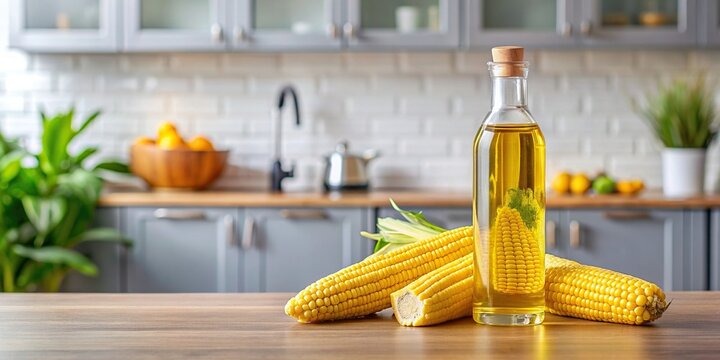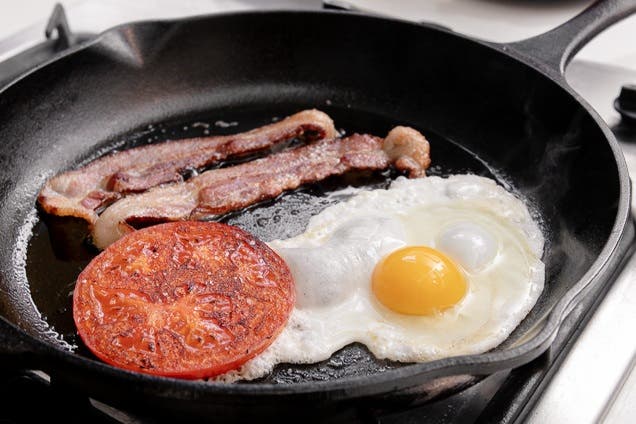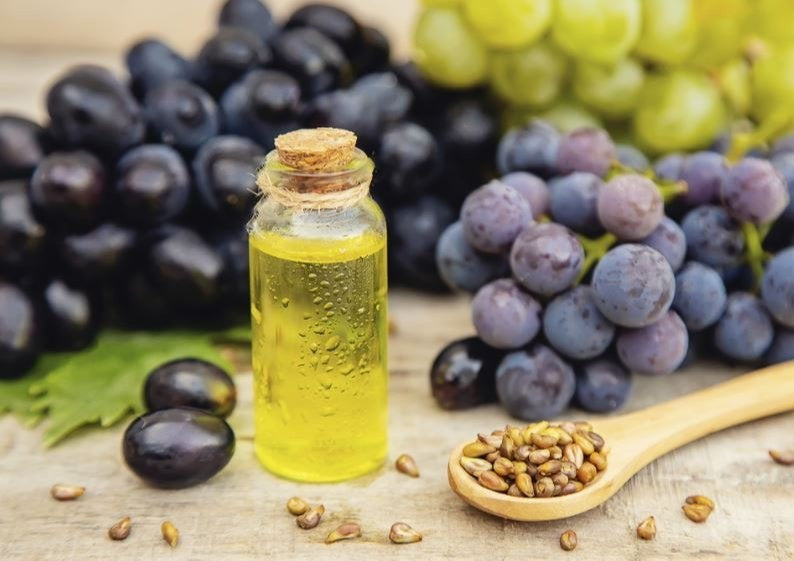Corn oil is a popular vegetable oil extracted from the germ of corn. Often used in cooking and frying, it boasts various applications that extend beyond the kitchen. But what exactly is corn oil, and why is it so widely used by kitchen professionals and household chefs alike? Through this extensive guide, we'll explore the origins, uses, and health benefits of corn oil in detail.

The Origin of Corn Oil
The journey of corn oil begins with maize, commonly known as corn. Corn has been a staple grain for many civilizations, especially in Central and South America, where it was domesticated thousands of years ago. The oil is derived from the germ, the small reproductive part of the kernel that germinates to grow into a new plant.
Modern corn oil production involves cleaning and crushing the corn germ, followed by pressing and solvent extraction. This process yields a translucent, pale yellow oil that has a mild taste, making it ideal for various culinary uses.

How Corn Oil is Made
Step 1: Cleaning and Milling
The process begins with the cleaning of corn kernels to remove debris. After cleaning, the kernels are milled, separating the germ from other parts of the corn. This step is crucial as the germ is the primary source of oil.
Step 2: Pressing and Extraction
The separated germ undergoes pressing to extract the oil. Additional solvent extraction is used to maximize yield, ensuring that a significant amount of oil is retrieved.
Step 3: Refining
The extracted oil is then refined to remove impurities and improve its shelf life. This involves degumming, neutralization, and bleaching, resulting in pure, high-quality corn oil.

Culinary Uses of Corn Oil
Corn oil's mild flavor and high smoke point make it an excellent choice for various cooking methods. It's a versatile ingredient in the culinary world, fitting into a range of cooking applications:
Frying
Its high smoke point, around 450 degrees Fahrenheit, makes corn oil ideal for deep frying and sautéing, ensuring that food cooks evenly without burning.
Baking
Corn oil can be a substitute for butter or margarine in baking, providing a moist texture and rich taste to baked goods.
Salad Dressings
Its neutral flavor allows it to blend well with other ingredients, making it a popular base for salad dressings and marinades.
For more on frying with corn oil and baking tips, check our comprehensive guides.

Health Benefits of Corn Oil
Beyond its culinary uses, corn oil is known for its potential health benefits. Incorporating corn oil into your diet may offer several advantages:
Rich in Polyunsaturated Fats
Corn oil contains a high level of polyunsaturated fats, which can help reduce bad cholesterol levels when used in moderation. This aligns with a heart-healthy diet, potentially lowering the risk of heart disease.
Contains Essential Fatty Acids
Linoleic acid, an essential omega-6 fatty acid found in corn oil, plays a crucial role in brain function, skin, and hair growth, promoting overall well-being.
Packed with Antioxidants
Corn oil is rich in vitamin E, a powerful antioxidant that helps protect cells from oxidative damage and supports immune function.
Explore more about the health benefits of corn oil and how to incorporate it into your diet.
Debunking Myths About Corn Oil
Despite its benefits, corn oil has faced scrutiny. It's essential to separate facts from myths to understand its place in a balanced diet:
Myth 1: Corn Oil Is Purely Unhealthy
While overconsumption of any oil can lead to health issues, moderate use of refined corn oil offers benefits without significant risks. Its nutrient profile supports heart health when integrated into a balanced diet.
Myth 2: All Corn Oil Contains GMOs
Not all corn oil is derived from genetically modified organisms (GMOs). Many brands offer non-GMO corn oil options, ensuring that consumers have choices aligned with their preferences.
Corn Oil in Non-Culinary Applications
Besides its culinary value, corn oil has several non-culinary applications, adding to its versatility:
Skin and Hair Care
The moisturizing properties of corn oil make it an excellent ingredient in natural skin and hair care products. It helps keep skin soft and hair shiny without the use of synthetic chemicals.
Industrial Uses
Corn oil is utilized in the production of biodiesel and as a lubricant in various industrial applications. Its chemical composition ensures efficiency and sustainability.
Check out our guide on industrial uses for more insights.
Conclusion
In summary, corn oil is a versatile and valuable oil with numerous applications and benefits. From its preparation methods to its health advantages, it offers much to those who use it, particularly in culinary arts. Kitchen professionals appreciate its adaptability, and its health benefits make it a worthy addition to a balanced diet.
For more information on corn oil and its uses, you can visit this comprehensive guide.
FAQ
1. Is corn oil good for frying?
Yes, corn oil's high smoke point makes it perfect for frying, ensuring your food cooks evenly without burning.
2. Can corn oil be used in baking?
Absolutely! Corn oil can replace butter or margarine in baking, providing a moist texture and rich flavor.
3. Are there non-GMO corn oil options available?
Yes, many brands offer non-GMO corn oil, catering to consumers who prefer non-GMO products.
4. How to clean a kitchen thoroughly?
For tips on cleaning a commercial kitchen thoroughly, check out this external guide.
As an Amazon Associate, I earn from qualifying purchases.






Leave a comment
This site is protected by hCaptcha and the hCaptcha Privacy Policy and Terms of Service apply.